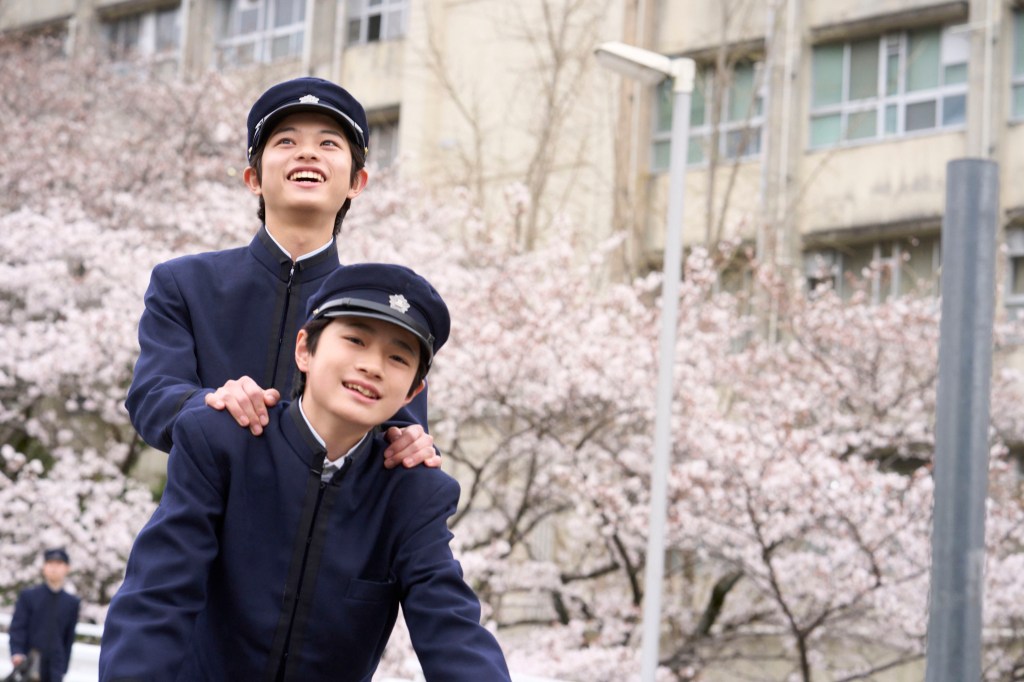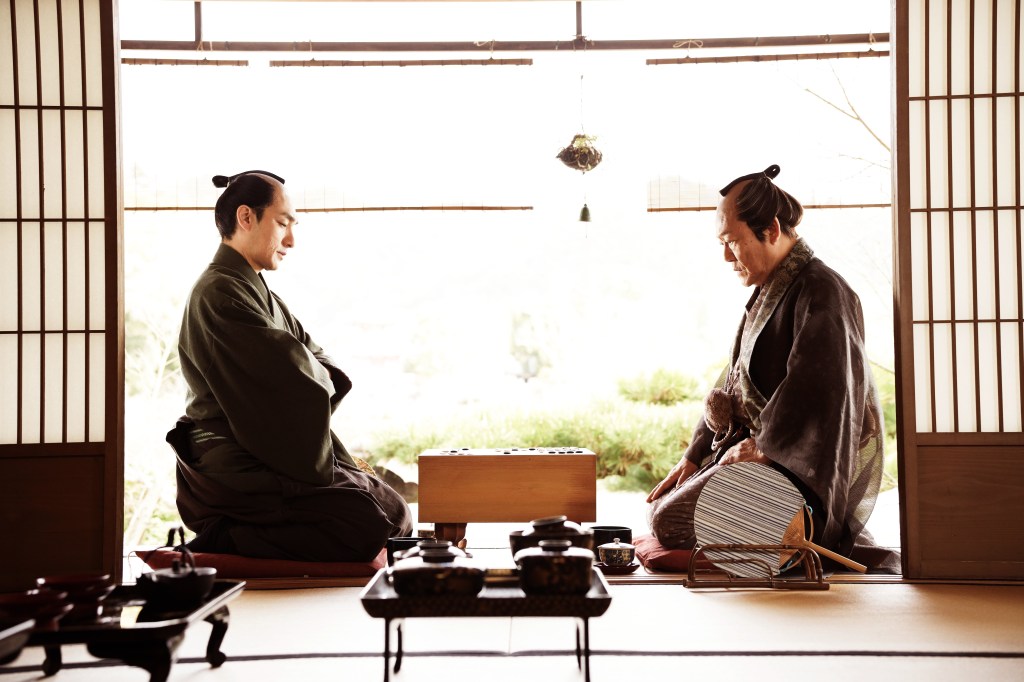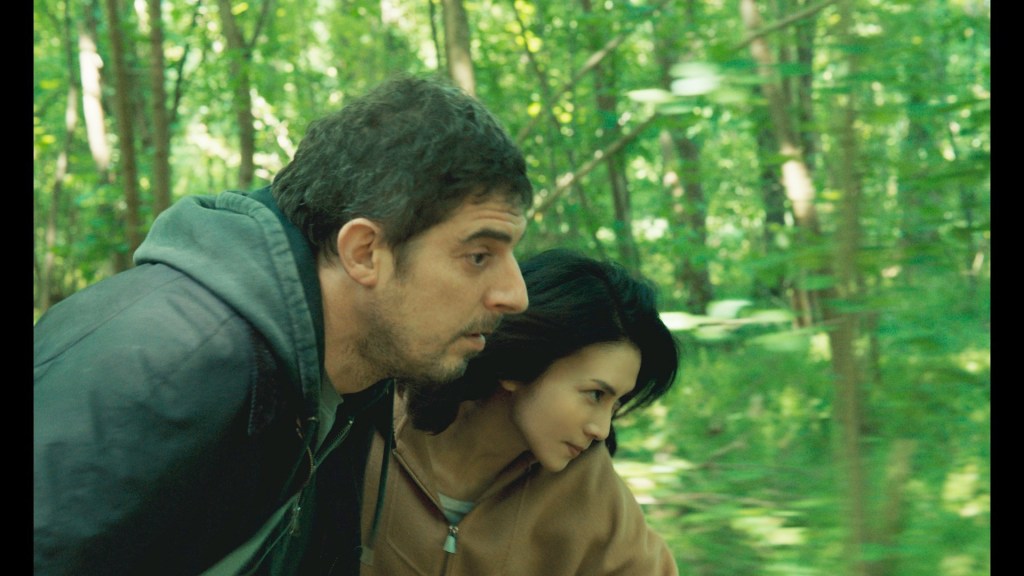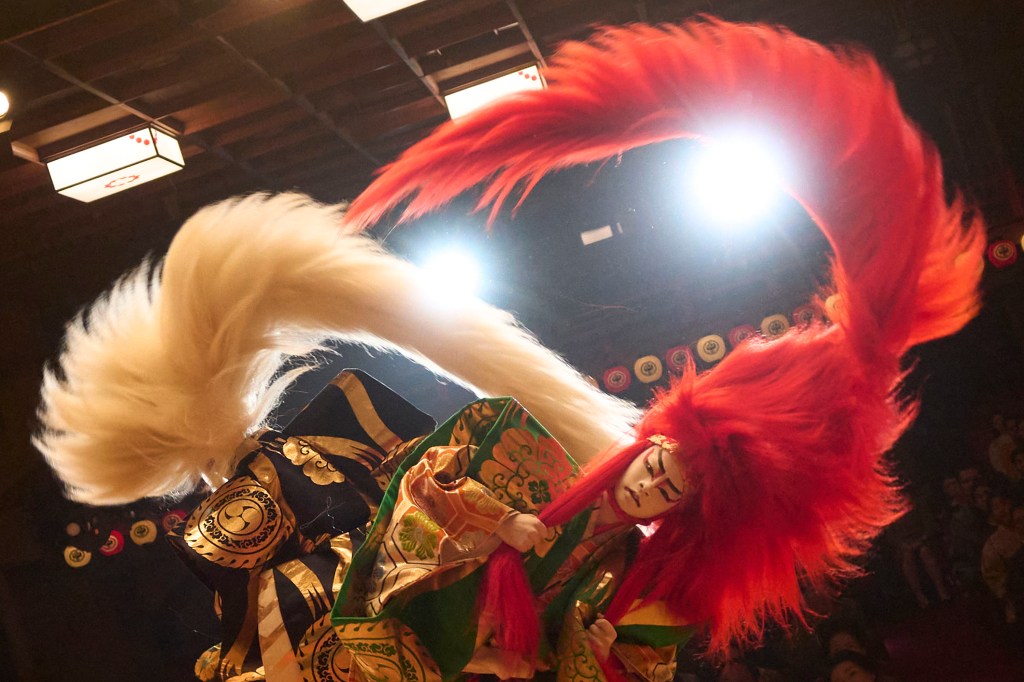Lovers of Japanese cinema can relish a feast of quality films at the 29th Japanese Film Festival, screening in several cities around the country from October 27.
Festival programmer Manisay Oudomvilay is particularly thrilled about the Opening Night film, Kokuhо̄, Japan’s official submission for the 2026 Academy Awards.
A three-hour saga that she assures everyone is well worth the effort of sitting through, it’s set against the backdrop of traditional Kabuki theatre. Directed by Lee Sang-il (Villain, Rage) and starring the legendary Ken Watanabe (The Last Samurai, Memoirs of a Geisha) and another huge star, Ryо̄ Yoshizawa, the epic story spans five decades and is based on the best-selling novel by Shūichi Yoshida.
“It’s basically about the life of the son of a Yakuza gang leader who’s taken under the wing of a Kabuki performer,” says Oudomvilay. “It’s his life journey as he learns Kabuki and navigates his way to the top of the art form. It’s shot beautifully and includes real Kabuki performances. The actors did strict training and it’s as if you’re watching it on a stage.”
 Soya Kurokawa and Keitatsu Koshiyama in Kokuho. © Palace Films
Soya Kurokawa and Keitatsu Koshiyama in Kokuho. © Palace Films
Kokuhо̄ has been an ongoing box-office hit in Japan since it came out in June, and has even been recently released in Japan with English subtitles, which Oudomvilay says is almost unheard of.
Samurai tales have long held allure for audiences and period drama Bushidо̄ draws you in from the opening sequence, with its evocative scenes of people playing the traditional Japanese board game, Go, in an historical village setting. With former pop idol Tsuyoshi Kusanagi starring, it’s been helmed by award-winning director Kazuya Shiraishi (The Blood of Wolves).
 Former pop idol Tsuyoshi Kusanagi (left) stars in Bushido. © 2024 Bushido Film Partners.
Former pop idol Tsuyoshi Kusanagi (left) stars in Bushido. © 2024 Bushido Film Partners.
“It’s a really great film and the first period type of drama by the director,” Oudimvilay explains, adding that the title refers to a Samurai moral code.
“The main character navigates his values through this code after he’s wrongly accused of a crime, is stripped of his status and is forced to live in poverty. When he has the opportunity to go face to face with a merchant in a game of Go, the chance encounter leads him to be lured into the world of gambling and debt.
“He’s given the chance to redeem his name and avenge his dead wife. The film has lots of fantastic swordplay and Samurai antics.”
If you’re a fan of the acclaimed director Hiyoshi Kurosawa (no relation to Akira Kurosawa), you’ll be happy to hear that the festival is offering three of his films. A master of horror and psychological thriller, Kurosawa has made the surprising choice to remake one of his own films, Serpent’s Path, in the French language and set in Paris. He directed the original Japanese version in 1998.
 Serpent’s Path. © 2024 Cine France Studios, Kadokawa Corporation, Tarantula
Serpent’s Path. © 2024 Cine France Studios, Kadokawa Corporation, Tarantula
“You have to be quite an iconic film director to remake your own film,” Oudimvilay points out, adding that the new version changes some elements, including that one of the main characters, a psychologist, is now a woman. “This one is a thriller and it can be a bit confronting. Fans of Kurosawa will appreciate it.”
The other two films from the director are Chime, a 45-minute horror-thriller about a disturbing sound that causes people to behave in strange ways; and Cloud, an award-winning psychological thriller, about a man who sets up an internet business and gets caught up in real and online threats.
Of course, it wouldn’t be a Japanese Film Festival if there wasn’t at least one anime choice. For those who might want something more family-friendly, there’s the quirky animated film, The Concierge at Hokkyoku Department Store, an adaptation of Tsuchika Nishimura’s manga.
Oudimvilay says of the only anime film in the program: “So many Japanese films tend to be adapted from manga and novel – they love doing that. This is such an adorable film and is really beautifully animated.
“The main character tries to tend to her customer’s needs in a department store where all of the customers are animals. It’s a very wholesome film for the family and I love that they also made an effort to include endangered species.”
Under the category of “quirky” is Cells at Work! It’s a live-action movie based on a popular manga series that turned into an anime, if you can keep up with that!
“It portrays the human body as a world where cells battle illness and injury,” Oudimvilay explains. “Each cell is a humanised version of itself. There’s a red blood cell and a white blood cell, fighting bacteria, who are the villains. It’s very funny to see how the parts of the body are portrayed in the film.”
From director Hideki Takeuchi (Fly Me to the Saitama), the film is described as “Inside Out meets Power Rangers – with a surprisingly high body count!” So, not one for the kiddies, by the sounds of it.
This year’s Special Series is a fascinating retrospective of films from the 1930s, a very influential period in Japanese cinema.
“These films are physical film reels that we have to ship in from Japan,” says Oudimvilay. “A lot of innovations were taking place that went on to shape Japanese cinema today. Directors were really free in what they made, with so much experimentation, and a lot of genres – dramas, melodramas, period dramas and comedies.”
No bookings are required for the Special Series, with the films screening at QAGOMA in Brisbane.
When asked about her own highlights of this year’s festival, Oudimvilay names Kokuhо̄ and Showtime 7 – a thriller starring Hiroshi Abe.
“It’s about a news anchor demoted from his primetime slot,” she explains. “He’s forced to take a late-night radio gig and gets a call about a bomb, which he dismisses as a hoax at first, but it’s real. He uses it as an opportunity to get back into the spotlight again.”
Japanese Film Festival, Palace Barracks Brisbane, Queensland Art Gallery and Gallery of Modern Art (QAGOMA), November 6 to December 19.
japanesefilmfestival.net


AloJapan.com